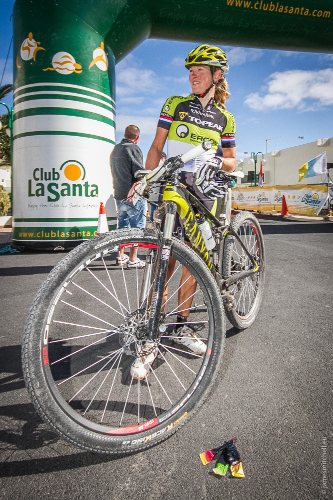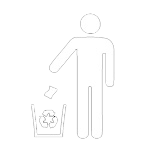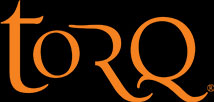‘You’re never satisfied’ are three words I often hear. Now that could be construed negatively, but I believe it’s a positive attribute driving me to seek new challenges and aspire to bigger goals.
At the beginning of 2013, I set myself a number of targets: A World Championship medal, the European Championship title, and a new course record at Leadville 100. Reflecting back upon the year, I can tick off the former and the latter: a Silver World Champs medal and winning Leadville in record time are two accolades that still make me smile – here comes the ‘but’ – but now I’m chasing more than a World Champs medal and I want to ride Leadville faster! A Silver European Championship medal – my third consecutive of that colour – means that I’m still chasing the blue jersey with golden stars in 2014.
So, how do you prepare for a season that’s bigger and better than the last, which was in fact a career best? In November, I was given a great piece of advice: do what you did last year, but do it better. In other words, don’t change anything, just iron out some of the mistakes. It’s all too easy to look at what others are doing, think they’re doing it better, panic and change your plan, however what works for some people might not work for you. It’s good to look around and get ideas but ultimately stick to what you know works for you and don’t make drastic changes. With this in mind, I had a clearer idea of how to prepare for 2014.
The 2013 season ended with one month completely off the bike – total rejuvenation – and the 2014 season began with an easy week of fun, unstructured, mountain biking – easing back into things rather than charging back in full throttle is good for body and mind. The first week of structured training was physically hard, but it got easier with every ride and during the second week it was business as usual. Something I found helpful was to ride new routes during this time, so that I couldn’t compare performance over known ‘timed’ sections; it’s obvious that you’ll be slower after a long break so there’s no need to depress yourself!
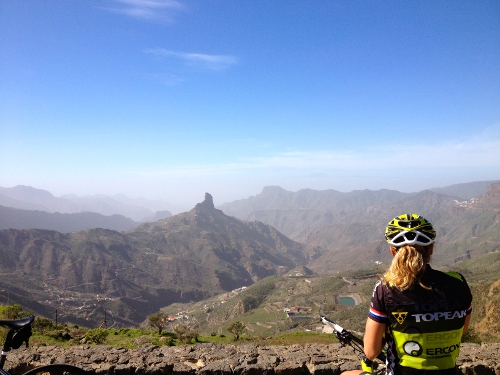
One thing we knew we could improve from the previous year was to reduce the amount of travelling throughout the winter months; flying to four different training/racing venues left me susceptible to illness. This winter we were fortunate enough to be able to base ourselves solely in the Canary Islands. We’ve had 3 months of uninterrupted training (over 7000km on the MTB) and optimal recovery – don’t overlook the importance of recovery, it’s just as critical as training. Living life as a pro is a privilege and in many ways – but not all – it’s easier than trying to fit training in around a full time job. So although our approach might be very different from most people reading this, I do hope that there are certain tips and advice that can benefit others.
The Lanzarote 4-day stage race a few weeks ago was a great test of speed and endurance and my performance on the short, as well as long distances, confirmed that we’re on track. A certain element of uncertainty always hangs over the first race of the season; although you can get an idea of fitness level from training, nothing provides a better test than a race. With the first major goal looming: the Cape Epic in South Africa, the Lanzarote race was an opportunity to test equipment too. The conditions are very similar to those in South Africa, with lots of sharp rocks and loose terrain, it can take a few days to dial in to that kind of riding, so having a few weeks here has been really beneficial from a fitness and technique point of view.
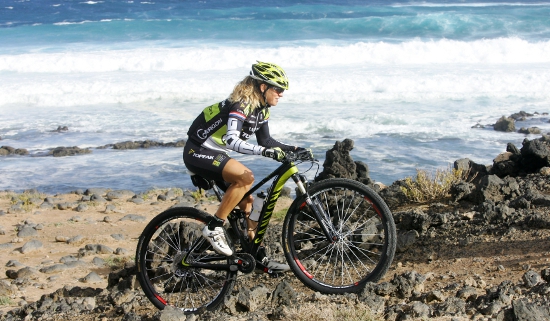
In a couple of weeks, we travel to South Africa where we’ll get time to acclimatise and prepare for 8 challenging days of racing starting on March 23rd. The duration (718km with 14,850m of vertical ascent), intensity and climate (temperature can exceed 40 degrees Celsius) mean that correct nutrition is critical. Throughout the 8 days I’ll consume around 40 litres of TORQ energy, 40-50 TORQ gels, 15-20 TORQ bars and 16 TORQ recovery drinks. Everyday I’ll be aiming to consume 1 to 1.5 grams of carbohydrates per KG of body weight per hour of racing and I’ll achieve that mainly through energy drink and gels, and possibly bars. Immediately after crossing the finish line I’ll have a 100 gram mix of recovery and then another before going to bed. That’s a lot of TORQ to check in at the airport but nothing compared to how much we packed for our winter training in Gran Canaria!
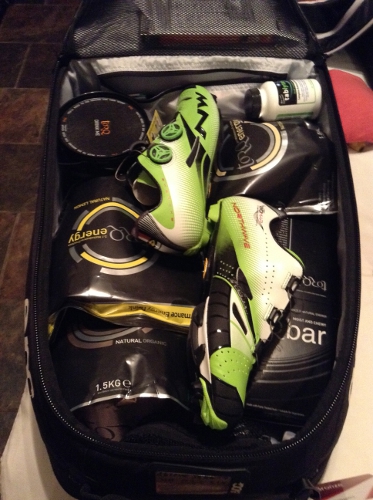
With my winter training over and the season about to begin, the foundations have been put in place for what I hope to be a great 2014 season. Even if your training has been interrupted due to the harsh winter weather, remember that it’s not too late to start.
Wishing you all a fun and successful year ahead! Train hard but rest harder. Sally 🙂
Thank you to Bob Foy and James Mitchell Photography for pictures 1 and 3 respectively
